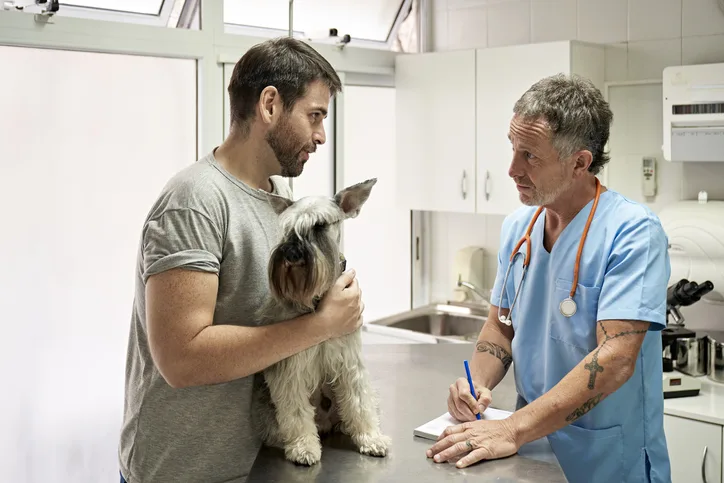
Talking to clients about medications and sharing important information that is not overwhelming can be challenging. Following are key points to discuss with clients when dispensing tylosin. Following counseling on the medication, a Plumb’s Drug Handout can be sent home for further questions or concerns.
What Clients Need to Know
Tylosin is an antibiotic used to treat some bacterial infections and inflammatory bowel disease and is not FDA approved for use in dogs and cats (use in these patients is considered extra-label).
Caution & Instructions
Tylosin ingestion can be fatal in rabbits, guinea pigs, rodents, and other small mammals. Although medication should never be shared with other household animals, extra caution is warranted if there are small mammals in the home.
Tylosin powder can irritate skin, eyes, and lungs. Clients should be instructed to wear gloves when handling this medication, wash their hands after handling, avoid touching their eyes, and avoid breathing in the powder.
Administration
Although tylosin can be given with or without food, giving tylosin with food can help prevent stomach upset. Tylosin powder has a bitter taste. It may be helpful to suggest placing the dose in an empty capsule rather than sprinkling the powder over food. Alternatively, the powder can be hidden in a high-value treat or strong smelling food.
Other Important Information
Clients should be prepared for common adverse effects of tylosin, including diarrhea and decreased appetite, and should contact the clinic if bloody diarrhea is present.
Tylosin should be kept in a dry place with the cap sealed tightly for protection from moisture. Tylosin is harmful to aquatic life, so clients should be strongly discouraged from disposing of leftover medication via toilets or sink drains.